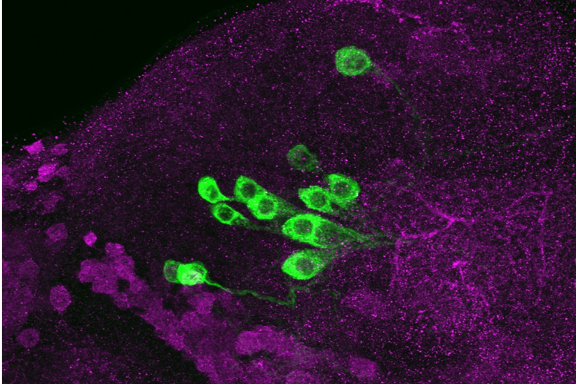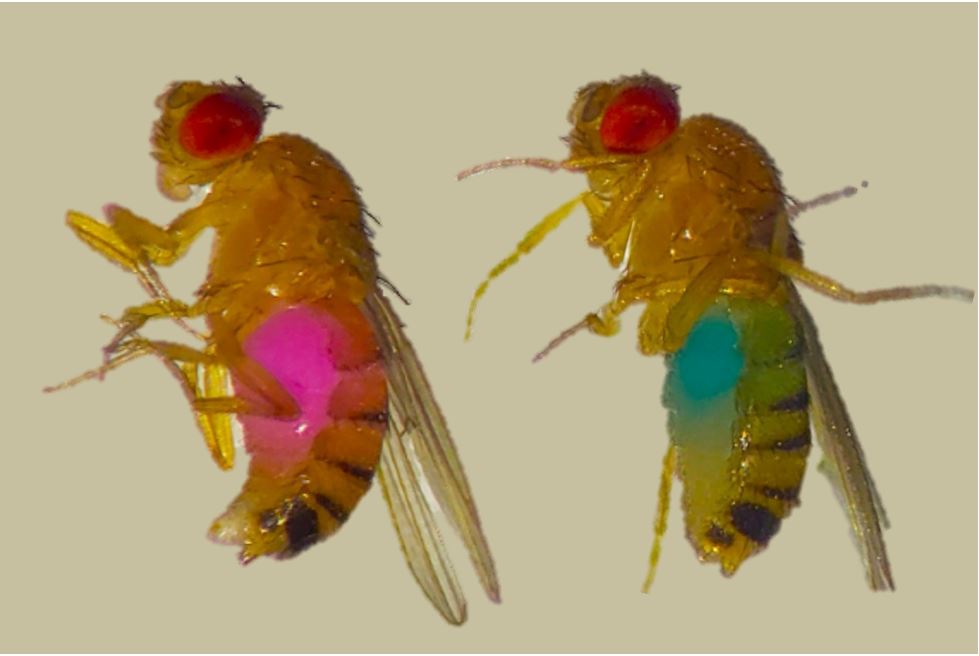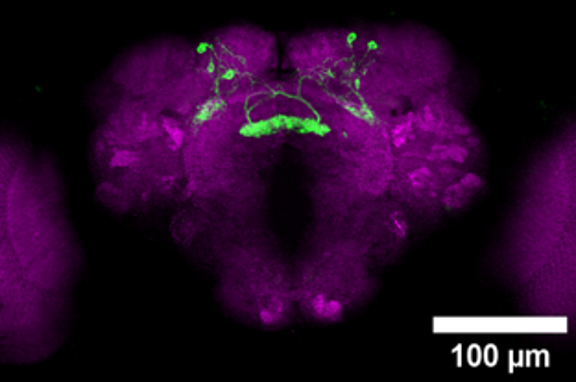Research
Historically, the lab's first research interest is sleep, specifically understanding sleep function and regulation. We are also actively investigating the relationship between sleep and memory. It is well documented that sleep disruptions negatively impact cognitive processes, and our research aims to gain mechanistic insight of these interactions. In addition, over the years, our research has broadened to now include the study of how organisms prioritize and organize the multiple behaviors they must perform to ensure survival. In particular, we focus on mutually exclusive and competing behaviors like sleep, feeding, and social behaviors. Organisms must constantly integrate information from their internal state and environment to decide which behavior is the most appropriate at any given time. This decision-making process must be tightly regulated, and malfunctions could have dramatic consequences, including death. Understanding the mechanisms underlying these decision-making processes is an important aspect of our research that is relevant to human health.
To investigate these complex questions, we are using the fruit fly, Drosophila melanogaster, which is a powerful model organism for human-related processes and maladies. Using its unparalleled genetic toolbox, including the Split-GAL4 expression system, we are dissecting the processes of sleep, memory, and decision-making into few, and even single, neurons to unequivocally assign behavioral roles to specific neurons.
Sleep
 What is sleep? Why do we sleep? How does sleep influence behavior?
What is sleep? Why do we sleep? How does sleep influence behavior?
Sleep is a behavior that is mutually-exclusive with others, such as foraging, forming social connections, or mating, and the semi-conscious state dampens our response to threats. Yet, sleep is conserved across the animal kingdom back to jellyfish and placozoans, suggesting an indispensable and essential role of sleep. While still largely unknown, investigation into sleep has identified many functions and sleep deficits have been linked to cardiovascular disease, cancer, dementia, illness, and accidents, all of which comprise the top 5 leading causes of death in the United States.
Our lab uses the fruit fly to dissect the behavior of sleep at the level of small groups of neurons, and even single neurons in some cases, to develop a neurogenetic understanding of sleep. These investigations are central to our research into decision-making and memory-related processes.
Decision-making
 Investigating the neuronal basis of behavioral choice between competing behaviors.
Investigating the neuronal basis of behavioral choice between competing behaviors.
How does the brain organize and prioritize competing behaviors? From choices of whether to sleep or pursue a social activity to deciding to eat a salad or cheeseburger, the brain assesses the options and initiates a response. But what is the correct choice? Decision-making behavior is a complex, intricate system of neuronal connections, feedback, and competing neuronal drives. Confoundingly, previous behaviors, such as sleep loss or a failure in past social interactions, can greatly influence future decisions in ways that may be counterproductive.
Our lab is investigating the neurogenetic basis of decision-making in fruit flies, in a search for specific neurons that are complicit in decision-making processes. We are also investigating how competing behaviors interact with one another to ensure that the optimal decision is made, as well as what happens to generate suboptimal decisions.
Memory
 Probing the complex circuitry, interaction, and mechanisms of memory-related processes.
Probing the complex circuitry, interaction, and mechanisms of memory-related processes.
Much like sleep, process of memory formation is essential for life, as evidenced by its presence across the animal kingdom down to jellyfish. Memory can be classified based on the duration, such as short- and long-term memory, or type of memory, such as episodic (details of an event) or procedural (how to perform a task). As we age, however, memory-related processes decline naturally, but they can also decline rapidly with the onset of neurodegenerative diseases. By understanding the mechanisms of memory, we can explore the potential to protect memory during aging and neurodegeneration.
Using fruit flies, our lab is exploring the interaction of sleep and memory to uncover the mechanisms and circuitry of memory-related processes, with the hopes of finding ways to protect memory when these processes are endangered.
